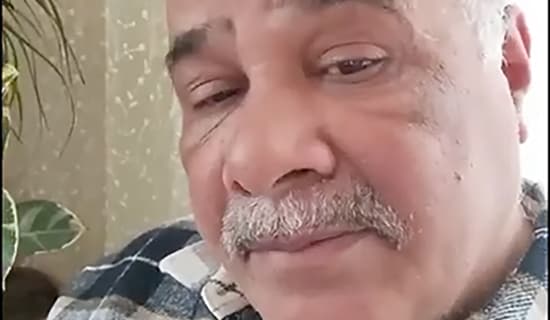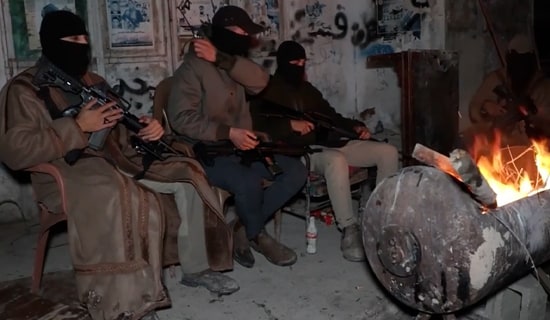
In a January 30, 2022 episode of Vest Nedeli ("News of the Week") that was broadcast on Russia 24 TV, Russian TV host Dmitry Kiselyov said that "possible provocations" from Ukraine can be expected at any moment. Kiselyov gave the example of Ukrainian National Guardsman Artemiy Ryabchuk, who killed five of his fellow servicemembers last week, and asked: "What if a similar 'Ryabchuk'... serving at the controls of a Grad multiple rocket launcher, pulls the trigger and strikes densely populated residential areas in Donetsk?" Kiselyov also said that today's Russia-Ukraine tensions are very similar to the tensions between Georgia and Russia in 2008. He elaborated that Georgia launched a missile strike against Tskhinvali while Putin was in Beijing for the Summer Olympics, and he suggested that Ukraine might act in a similar fashion against Russia the following week, when Putin would be in Beijing for the Winter Olympics. Kiselyov then showed excerpts from an interview about the war with Georgia that Putin gave in 2008, in which Putin criticized the U.S. for having trained the Georgian military and for not intervening in the conflict once Georgia attacked. In the interview, Putin said: "We are a peace-loving country... But if someone believes that it is allowed to come and kill us, [they] should think what consequences such a policy will have for them."
Dmitry Kisely: "Tensions in Donbas on the line of contact with Zelensky's Ukraine are such that possible provocations can be expected at any moment. Here is a fact, seemingly unrelated to the big picture. Ukrainian National Guardsman Atremiy Ryabchuk shot and killed his fellow servicemen with an assault rifle in Dnipropetrovsk on Thursday.
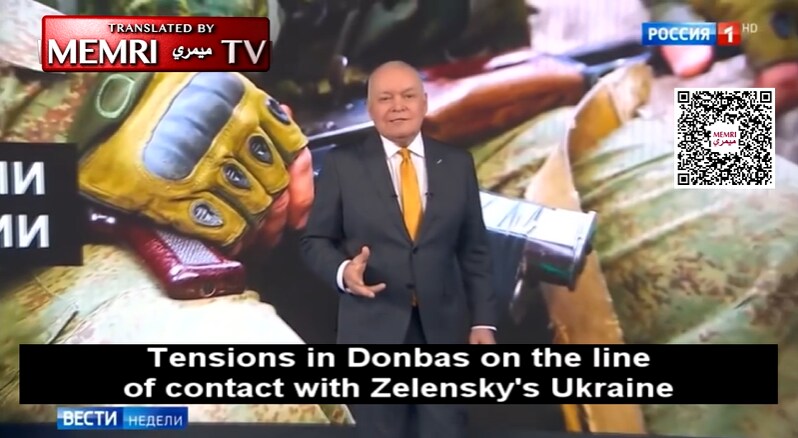

"Five were killed and five others were wounded. Artemiy Ryabchuk has surrendered and cannot explain his motives. What if a similar 'Ryabchuck,' unaware of his motives, serving at the controls of a Grad multiple rocket launcher, pulls the trigger and strikes densely populated residential areas in Donestsk? How should the Donbas military respond?
"How soon must the decision to retaliate be taken? What would happen next? This is one scenario. There is another scenario. Putin is flying to Beijing next week for the Olympics opening ceremony, while Zelensky has been preparing for war. And he is ready. We shall explain his motives later on. But he is as volatile and nervous of a person as Saakashvili is.
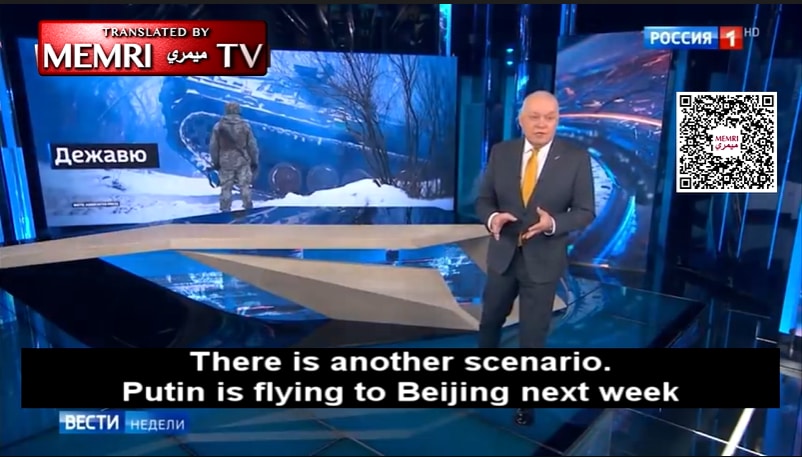


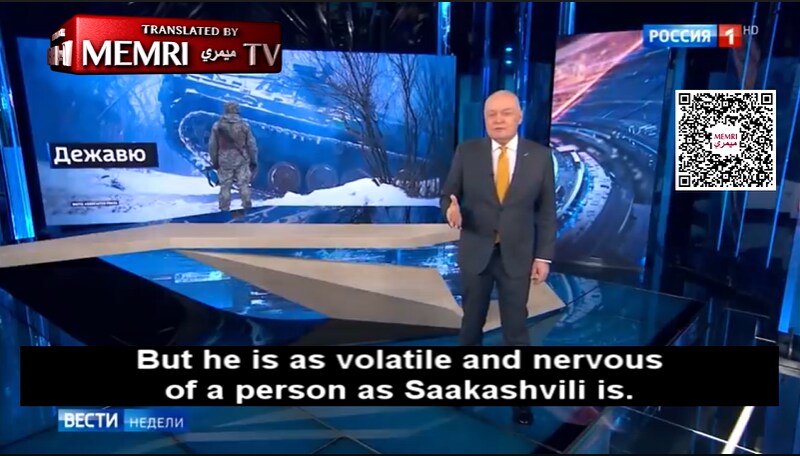
"Back in 2008, Putin also left the country for the opening of the Beijing Summer Olympics. At that moment, after endless provocations and shootings, after having been prepared for war and armed by the same U.S. [that is arming Zelensky] Saakashvili ordered a nighttime missile strike on the South Ossetia capital of Tskhinvali. Here is that footage.
"These days, on the eve of the Olympics, I'm experiencing a déjà vu."
Vladimir Putin: "At that time we tried to contact the Georgian leadership. Everyone refused to contact us. At 5:20, tank columns of Georgian troops attacked Tskhinvali. Before that, a massive Grad missile strike was conducted. We have suffered personnel losses. I was at Beijing at the time, and as you know, I had an opportunity to have a short conversation with the U.S. President.
"I directly stated that we could not reach the Georgian leadership. But one of the leaders of the Georgian Armed Forces announced that they had started a war with South Ossetia. Georgia responded to me that nobody wants war. We hoped that the US administration would intervene in this conflict and stop the Georgian leadership's aggressive actions. Nothing of the sort happened."
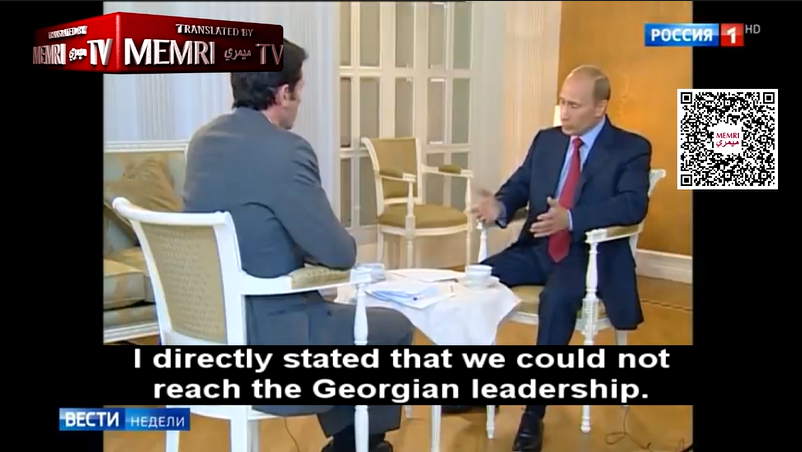
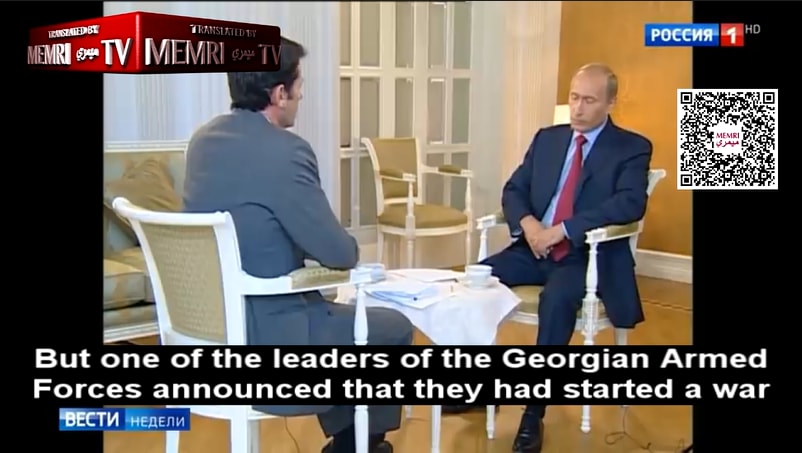

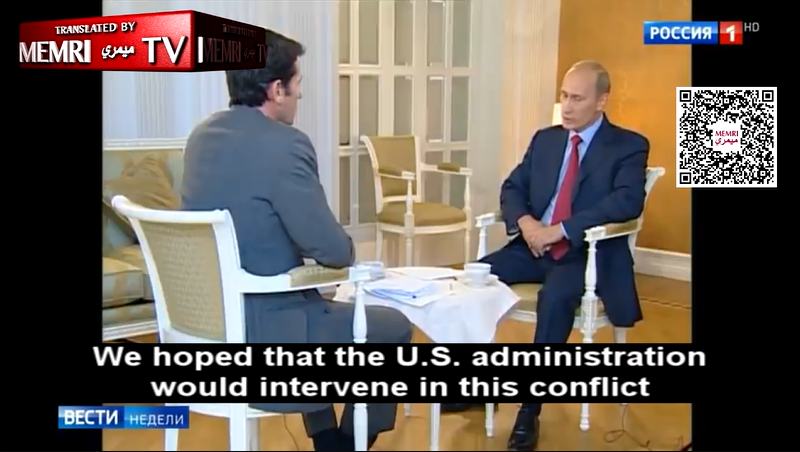

Kisely: "Moreover, at first the American media was silent. They did not want a war, either. Or, more precisely, they did not want a rocket attack ordered by Saakashvili. It was only when Russia announced its military support for South Ossetia and the start of the operation to force Georgia to peace that everyone started talking, as if on cue, saying that it is a 'Russian invasion.'
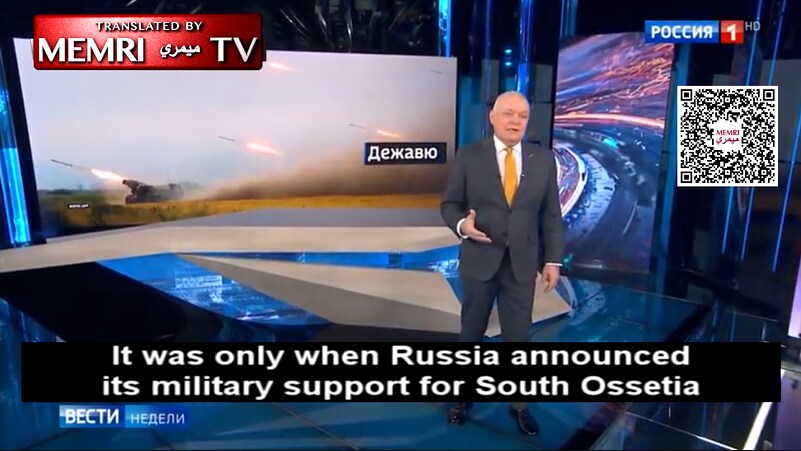


Putin: "But it is not just the fact that the U.S. administration has failed to stop the Georgian leadership from this criminal action. The American side has in fact armed and trained the Georgian army. Why spend years of difficult negotiations in search for compromise solutions in interethnic conflicts? It is easier to arm one side and prompt it to kill the other side, and the job is done.
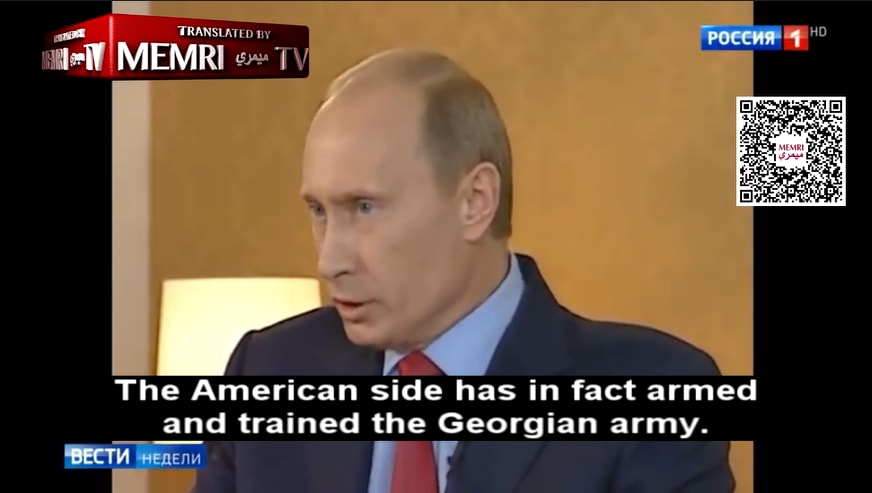
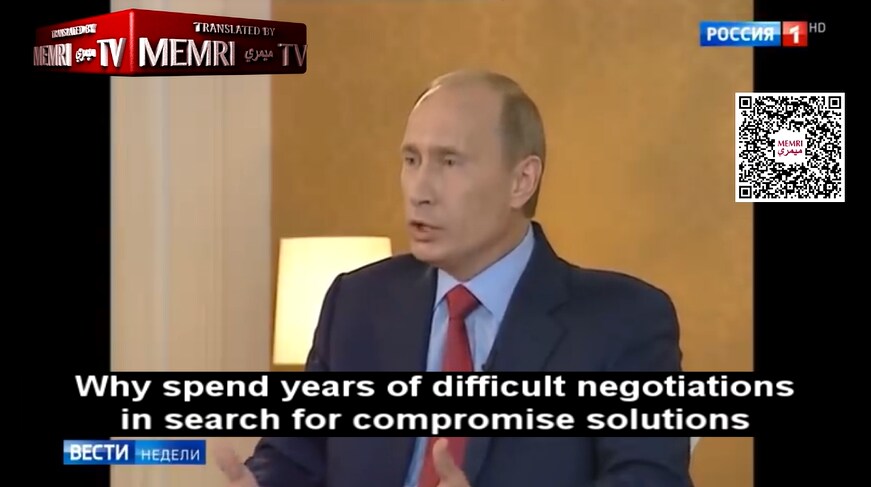


"A seemingly easy solution, but it turns out that this is not always the case."
Kisely: "Again the same footage on the same topic, but look how relevant it is today."
Putin: "I often hear the same question: 'What place does Russia itself claim in the world? Where does it see itself?' We are a peace-loving country and we want to cooperate with all our neighbors and all our partners. But if someone believes that it is allowed to come and kill us, and that our place is at the cemetery, then these people should consider what consequences such a policy might have for them."
















